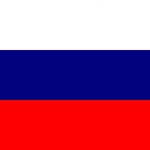Learning Russian can seem overwhelming at first. It uses its own alphabet, not to mention the genders, and seemingly endless cases, prefixes, and suffixes you need to remember.
You may be tempted to turn back already, but don’t let the Russian language intimidate you too much!
It may look difficult, but it’s not as scary as it seems. In this article, I'll cover the basics to help you get started on this exciting journey. Trust me, it will be worth it.
Pro Tip
If you're looking for the fastest and most enjoyable way to learn Russian, then I recommend the Russian Uncovered programme.
With Russian Uncovered you'll use my unique StoryLearning® method to learn Russian through story… not rules.
It's as fun as it is effective.
If you're ready to get started, click here for a 7-day FREE trial.
In this article, I will answer all of the following questions and give you the framework you need to start learning Russian. Feel free to skip ahead using these links:.
Table of Contents
Hopefully, I can help you approach learning Russian feeling well-informed, confident, and inspired!
Because this post covers everything you need to know as a beginner, it’s quite long! I’ve also prepared a special PDF version of the post so you can download it and read it anywhere, anytime.
Why Should I Learn Russian?

Никогда не поймёшь один язык, пока не выучишь по крайней мере два.
(Nikagda ne paymyosh adin yazyk, paka ne vy-uchish pa krayney mere dva.)
You will never understand one language until you learn at least two.
There are many reasons to study Russian today. Maybe you…
- …have a Russian-speaking significant other?
- …are of Russian descent and want to reconnect with your heritage?
- …have an interest in Russian, Soviet, or post-Soviet culture and history?
- …plan to travel or live in Russian-speaking countries?
- …want to be able to appreciate Russian artworks in the original?
- …want to expand your knowledge of languages in general?
No matter why you want to learn the Russian language, there are many reasons to be excited. It can seem complex, but even learning the basics will unlock a new world for you. Let’s take a look at some of the many reasons why learning Russian could be a life-changing experience for you…
1. Russian Is Spoken Throughout Eastern Europe And Central Asia
Russia is a major political and economic player in the world. It has a rich history dating back to Rus’, or Ruthenia, in the 11th century. Especially in recent years, the country has featured in the news often for a number of reasons.
And yet, there seems to be a lack of interest in the West to truly understand Russia, its people, and its culture. People seem to confuse the politics of the country with its spirit. Learning Russian can help you get past this and uncover the “real” Russia for yourself.
But of course, Russian is not only spoken in Russia. It is the official language of Belarus, Kazakhstan, and Kyrgyzstan.
It is widely spoken in the Baltics, Eastern Europe, the Caucasus, and Central Asia. This is one of the legacies of the former Soviet Union, which remains of immense historical importance and interest worldwide.
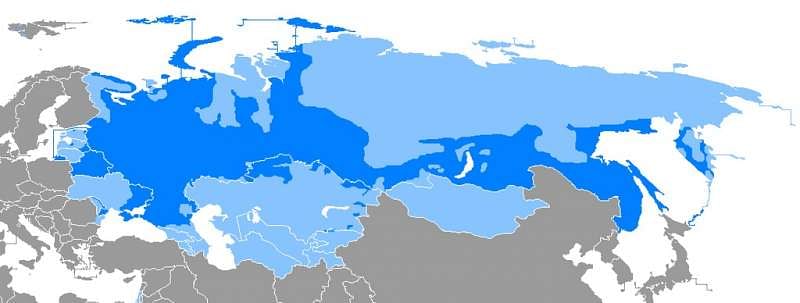
Russian is the largest native language in Europe, and the most geographically widespread language in Eurasia. Its total number of speakers is over 265 million people.
Interestingly, Russian is one of the two official languages on the International Space Station. NASA astronauts take Russian language courses when they go on missions with Russian colleagues. The tradition dates back to Apollo-Soyuz, which was the first joint US-Soviet space flight in 1975.
The Russian language is also estimated to be one of the most-used languages on the internet. Around 6.1% of the top 10 million websites online feature Russian content. Likewise, Youtube enjoys 47.4 million monthly active users from Russia.
Knowing Russian means you can understand much more content. This is a great opportunity to broaden your perspective of the world.
2. Russian Is Useful For Travel And Cultural Experiences
The Russian language is practical to know if you are interested in travelling in Russian-speaking regions. Nowadays, knowledge of English among Russian speakers is growing rapidly, especially in urban areas.
However, many regions and groups speak only Russian, or a combination of Russian and another mother-tongue. Less than 5.5% of Russians speak English, for example.
If you are a more adventurous tourist, or really want to immerse yourself in the local culture, knowing the Russian language is beneficial. There’s added motivation in knowing that you usually can’t fall back on English.

3. Russian Helps You Appreciate The Arts
Some of the world’s most respected literature and films were written in the Russian language. You have probably heard of the poetry of Pushkin, the short stories of Chekhov, the novels of Tolstoy and Dostoevsky, or the films of Tarkovsky.
When you learn Russian, you can discover a new world of art. You can read and listen to works in their original form and truly discover the poetry of the language.
You will also gain an appreciation of the nuances, challenges, and limitations of translating Russian into other languages.
You might even become that annoying friend who interrupts a film to say the subtitles translated the Russian character’s lines incorrectly. Or that the Russian character barely speaks Russian. (I have seen this a lot!)
4. Knowing Russian Will Make It Easier To Learn Other Languages
Russian is a unique language, but it shares features with other Slavic tongues. Studying Russian will give you a strong linguistic foundation to approach other languages. This applies to other languages in the Slavic branch, as well as languages in general.
This doesn't mean that by learning Russian, you will also be fluent in Ukrainian and Belarusian. But it does mean that these languages will become less alien to you. You'll begin to spot similarities and connections between languages. You'll likely understand words and phrases in other Slavic languages.
In addition, studying the linguistic complexities of Russian really develops your aptitude for language learning overall. You will gain skills in analysing grammar and etymology which you can apply over and over again.
Key Features Of Russian
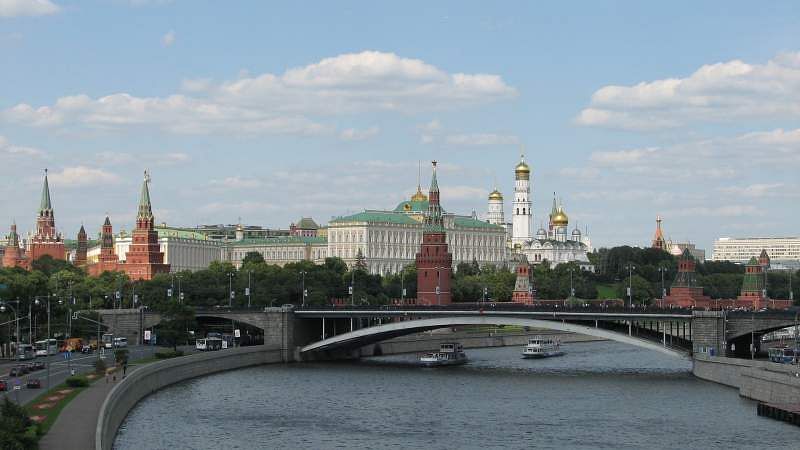
I’ve introduced the importance and usefulness of the Russian language. Now, let’s have a look at its key features and discuss how you can approach them as a beginner learner.
Let’s jump right in and take it step by step. You might also enjoy this video all about The Russian language:
#1 Russian Is A Slavic Language
Russian traces its roots to the Slavic language. In turn, Slavic languages are traced back to Proto-Slavic, which existed in the Middle Ages.
More specifically, Russian is in the East Slavic division of languages. Its closest relatives are Ukrainian and Belarusian, as well as the ethnic language of Rusyn.
Currently, Slavic languages are widely spoken across Eastern Europe the Balkans, Central Europe, and all of Russia, as well as former Soviet territories in Northern and North-Central Asia. See the map below to help you visualise the distribution of these languages.
Learn more about Russian language history.
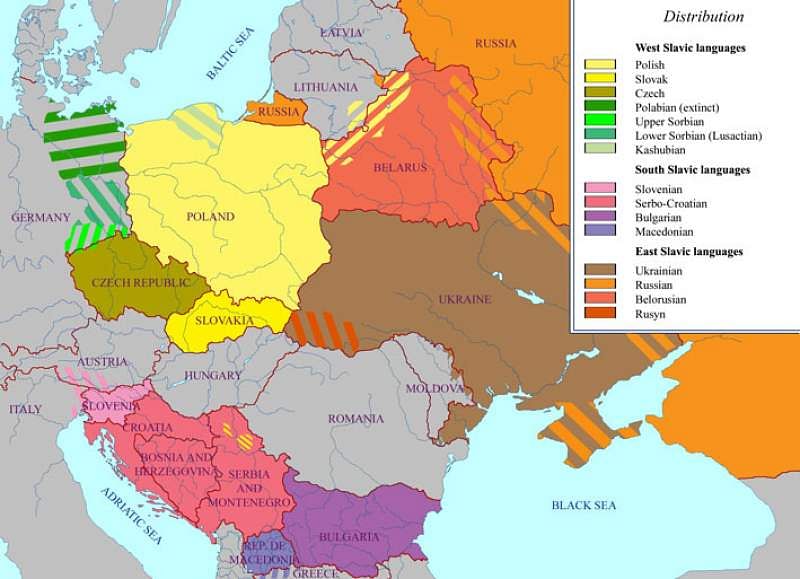
#2 Russian Uses The Cyrillic Alphabet
One of the first things that can discourage people from learning Russian is having to learn a new alphabet. But don’t worry, it’s really not as difficult as it seems!
Most new students spend a few initial hours memorising the letters. And then master them within the first few weeks of studying Russian. Here's why.
The Cyrillic alphabet only has 33 characters. And many of these are very similar to Latin letters in how they look, sound, or both.
For example, the letters A, E, K, M, O, and T look and sound (mostly) the same as in English.
Other letters, namely B (Б), V (B), G (Г), D (Д), Z (З), L (Л), N (Н), P (П), R (Р), S (С), and F (Ф), look different but sound the same as their English counterparts.
That only leaves some Cyrillic letters which have no equivalent in English, including the hard and soft signs, which are used to modify consonants.
These are easy to master once you know how they sound. And begin to learn words that include them. Here is what the Cyrillic alphabet looks like in full, with phonetic translations:
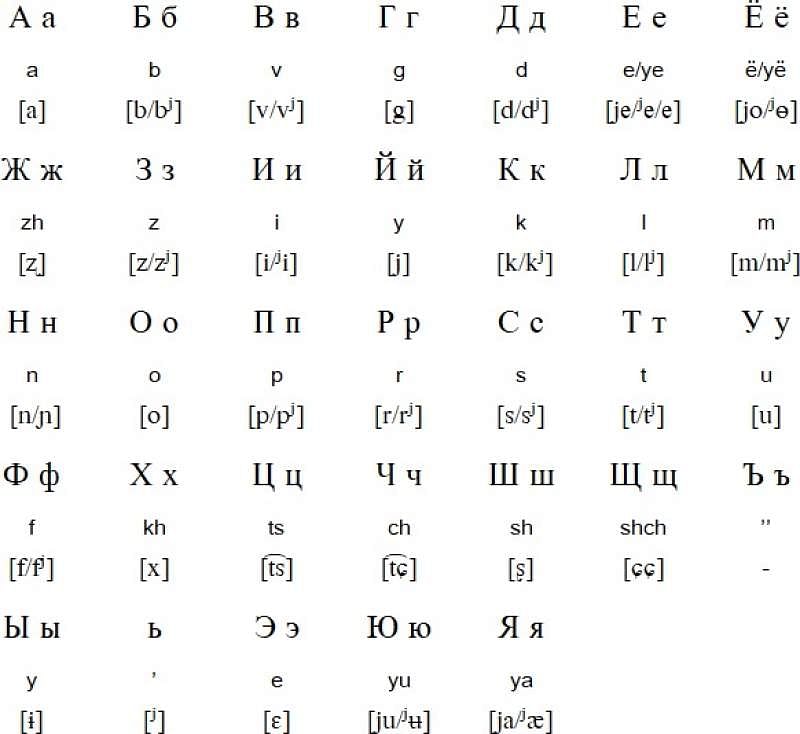
In many ways, Cyrillic is actually easier to read than the English alphabet because the pronunciation is always the same, save for the intonation.
For this reason, if you ask how to spell something in Russian, the answer will not be naming each letter individually like in English. Rather, spelling is communicated by saying the word slowly, and enunciating each letter as it would sound on its own.
As you begin to study Russian, you will discover that cursive is the predominant handwriting style. Some letters written in cursive, and even in italics, look different from those written in regular print. For example, the D (Д) and the T (T). This chart shows you how each letter is written in cursive:
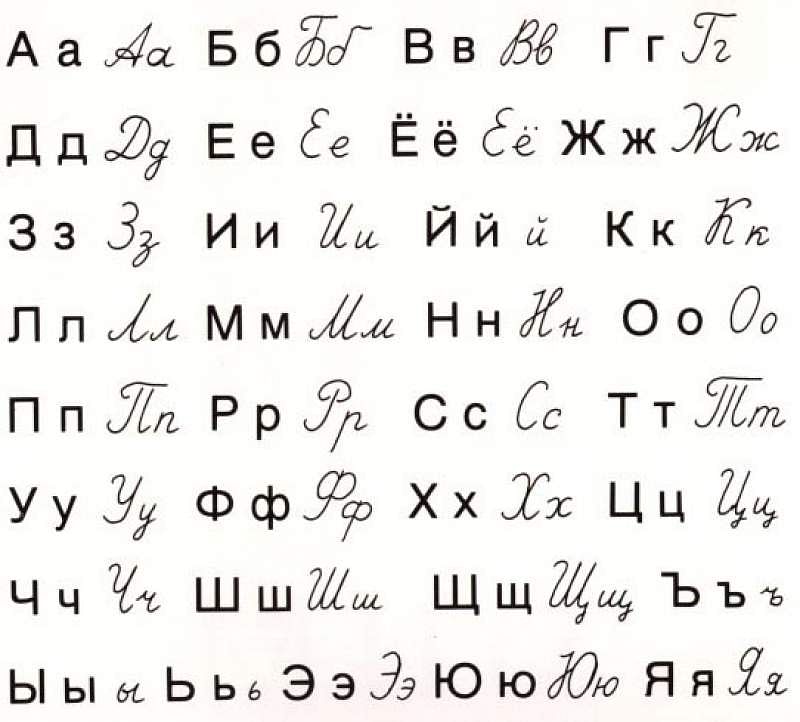
As you can see, most letters look the same or very similar in print and cursive, so there is no need to be worried!
Do keep in mind, however, that some cursive looks like this:

And other cursive looks like this:
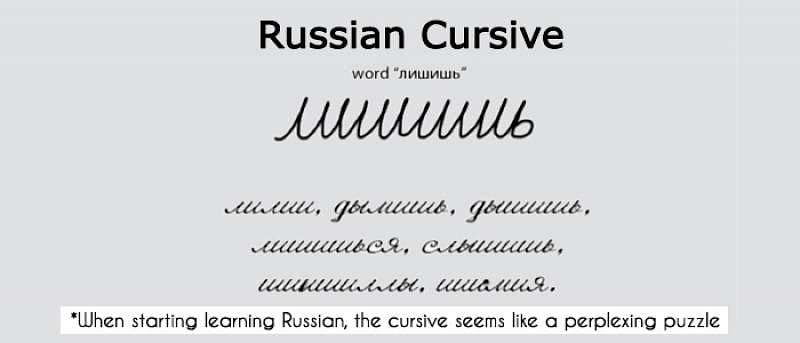
But of course, the alphabet is only how the words are written. In the next section, we will look at how spelling and pronunciation work in Russian.
#3 Spelling And Pronunciation In Russian Is Regular
Russian spelling rules and pronunciation are much easier in Russian than in English, because they are regular. This means that once you understand the rules of Russian pronunciation, you can’t get it wrong.
(One thing you should know about the Russian language is that there are many rules to learn, but very few exceptions.)
You will never have to guess how a word sounds once you know the basics, unlike you sometimes do in English even if you’ve mastered the language.
#4 Use Of Word Gender

In Russian, as in many other languages, nouns are divided into three genders. These are masculine, feminine, and neuter.
Keep in mind that with words like “father”, “sister”, and brother”, gender relates to the nature of the physical subject.
With inanimate objects, on the other hand, gender is only grammatical. It will determine things like the suffixes of adjectives and which pronouns to use.
Luckily for beginners, it’s very easy to determine the gender of a word by looking at its ending. Words that end in soft signs can be a bit tricky, but otherwise there are only a few exceptions you'll need to remember.
Feminine nouns end in -А, -Я (ya), or -Ь (soft sign). Here are some examples:
- газета [gazeta] – newspaper
- Россия [Ra-see-ya] – Russia
- дочь [doch’] – daughter
Masculine nouns end in -Й (y), -Ь (soft sign), or any consonant. Examples include:
- край [kray] – edge
- день [dyen’] – day
- документ [da-koo-ment] – document
- хлеб [khleb] – bread
Neuter nouns end in -O or -Е (ye). Such as:
- здание [zda-nee-ye] – building
- радио [ra-dee-yoh] – radio
- письмо [pees’-moh] – letter
The most notable exceptions to these rules are all masculine, and most of them result from physical gender. These include:
- папа [papa] – dad
- дядя [dya-dya] – uncle
- дедушка [dedushka] – grandfather
- мужчина [muzh-shee-nah] – man
- кофе [koh-feh] – coffee
Keep in mind that nouns can change endings depending on quantity or the case. As such, the sentence “I received grandpa’s letters” is translated as “Я получил(a) письма дедушки”.
“Письмо” becomes the plural “письма”, and “дедушка” becomes “дедушки” to fit the genitive case, used in this situation to indicate (former) possession. (In English, the same is achieved using an apostrophe and “s”, as in grandpa’s).
For this reason, it’s important to look at the ending of the original, singular form of a noun to determine its gender.
Now that you know how to gender Russian nouns, I will cover the basics of Russian pronouns and verb conjugation. These are important for beginners to learn, and a great step towards mastering the Russian language.
#5 Russian Verb Conjugations

Verb conjugation is the modification of the verb based on the subject of the sentence and the verb tense.
In English, verb conjugation is very basic (I go, you go, he goes, and so on), but there are many tenses.
Verb conjugation in Russian is the opposite, where conjugation requires a different ending for each subject, but there are only three verb tenses (past, present, and future).
The infinitive is the unconjugated form of a verb. For example, “to run”, or in Russian, “бежать” [bezhat’].
Russian verbs change their endings according to the subject, or who is performing the action. This happens according to two different patterns, known as first and second conjugation.
Which conjugation pattern you should apply depends on the ending of the infinitive.
The First Conjugation
The so-called first conjugation is the most common. It is used for verbs ending in “ть”, but not “ить”.
To conjugate verbs in this category, simply drop the last two letters of the infinitive, and then add the appropriate ending (“ю”, “ешь”, “ет”, “ем”, “ете” or “ют”) as follows:
Let’s conjugate работать [ra-bo-tat’] – to work
- Я работаю [ya rabotayoo] – I work
- Ты работаешь [ty rabotaesh’] – You work
- Он/Она/Оно работает [on, ana, ano rabotayet] – He, She, It works
- Мы работаем [my rabotayem] – We work
- Вы работаете [vy rabotaye-tye] – You work (where you is formal/plural)
- Они работают [anee rabotayoot] – They work
The Second Conjugation
The second conjugation pattern is used for verbs whose infinitive ends in “ить”. It is applied just like the first conjugation, but has different endings.
(Though the rule is simple, there will be a few spelling rules and consonant mutation rules to learn along the way. For more information, visit the learning resources section of this article.)
The second conjugation uses the endings “ю” (or “у”), “ишь”, “ит”, “им”, “ите”, “ят” (or “ат”), which replace the ending letters “ить”.
For example, let’s take the verb говорить [gavareet’] – to speak
- Я говорю [ya gavaryoo] – I speak
- Ты говоришь [ty gavareesh] – You speak
- Он/Она/Оно говорит [on, ana, ano gavareet] – He, She, It speaks
- Мы говорим [my gavareem] – We speak
- Вы говорите [vy gavaree-tye] – You speak
- Они говорят [anee gavaryat] – They speak
Russian Irregular Verbs
Like most languages, there are a number of Russian irregular verbs. They are not conjugated according to the first or second conjugation, but in their own way.
Usually, the endings follow a very similar pattern to those above. The only slight challenge is that the root of the word isn’t immediately obvious from looking at its infinitive.
But there’s no need to worry. Most verbs are regular, and the rest will be relatively easy to learn once you’re familiar with conjugation.
Let’s move on to an easier characteristic of Russian – the flexible sentence structure.
#6 Russian Word Order Is Flexible

In the Russian language, word order is relatively flexible. Generally, sentences are arranged similarly to English, in the order subject – verb – object.
However, Russian grammar rules allow you to mix these up. (A fun implication of flexible syntax is how useful it can be for rhyming poetry.)
Changing the order of the words will not change the immediate meaning of the sentence. However, it can significantly impact which part of the sentence is emphasised. It also affects the style and connotation of what is said.
Let’s look at an example of how flexible Russian syntax is. If you wanted to say “a cat caught a mouse”, you could do this in all of the following ways:
1. Кошка поймала мышь (subject – verb – object)
2. Мышь поймала кошка (object – verb – subject)
3. Поймала кошка мышь (verb – subject – object)
4. Кошка мышь поймала (subject – object – verb)
5. Мышь кошка поймала (object – subject – verb)
6. Поймала мышь кошка (verb – object – subject)
All of the above are grammatically correct, but note that some would sound strange when said out of context. As you begin to hear and speak more Russian, you’ll become more familiar with the effects of syntax on meaning.
For now, we’ll move on to another more subtle way that meaning can be impacted in Russian.
#7 Russian Prefixes And Suffixes
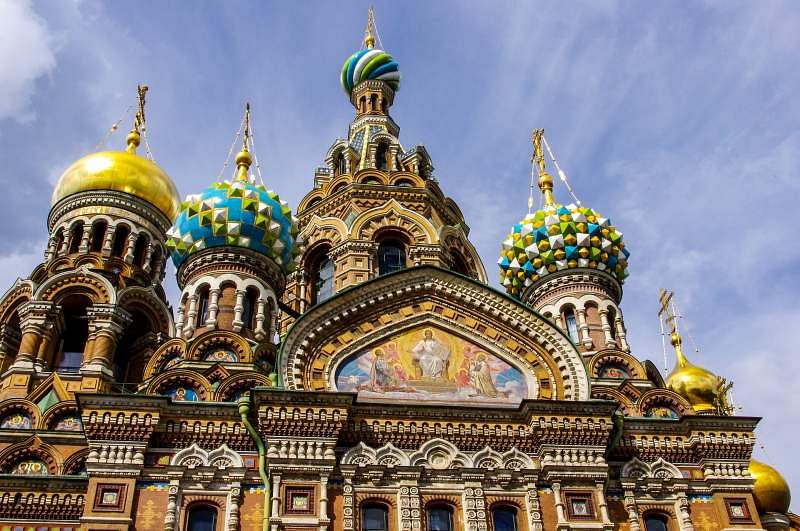
As I have mentioned before, Russian is a very concise and specific language. If you translate Russian sentences into English, they will almost always end up longer in English. I think this is very exciting, because it means you can pack a lot of meaning into a few words.
One of the reasons for this is the use of prefixes and suffixes, or letters placed before and after the root of the word to alter its meaning. They can apply to verbs, nouns, and adjectives.
Prefixes are especially important for Russian verbs, which can mean completely different things depending on their prefix. (We see this in some cases in English, as in “foresee” or “undercook”.)
Learning prefixes and suffixes in English won’t necessarily help you figure out what words mean, because they are largely inconsistent.
In Russian, however, prefixes and suffixes are complete and consistent. This is great when you start to learn, because you don’t have to memorise each word individually. Rather, you can just figure out what words mean if you have a comfortable grasp on prefixes and suffixes, and some knowledge of root words.
See for example how many variants there are on the root word
- держать [derzhat], meaning “to hold”:
- Выдержать [vy-derzhat] – to hold out – to withstand, survive, tolerate, or to keep (as in vintage wine or cheese)
- Додержать [da-derzhat] – to keep or hold up to a particular moment (this is rarely used)
- Задержать [za-derzhat] – to hold back/behind – to delay or prevent from moving on
- Издержать [ees-derzhat] – to hold from/out of – to spend or waste (a bookish term)
- Одержать [ah-derzhat] – to hold all around – to win, when used with “victory”
- Передержать [pe–re-derzhat] – to hold over or across – to overdo, to hold or keep (something, somewhere) for too long
- Придержать [pree-derzhat] – to hold towards or near – to hold back or delay slightly, or to hold something lightly to prevent it from moving or falling ie. keep in place
- Подержать [pa-derzhat] – to hold or keep for a bit (of time) – to hold for some time, temporarily
- Поддержать [pad-derzhat] – to hold (from) under – to support
- Сдержать [sderzhat] – to hold down – to hold back, fight off, or restrain
- Удержать [oo-derzhat] – to hold away – to hold onto sth successfully (without dropping), to save or keep safe, to keep from leaving, to suppress (ie tears)
As you can see, there are many meanings and applications of the same root word thanks to the many prefixes. Luckily, there are just over 20 common prefixes to learn. Once you grasp these, you can infer what words mean, and your vocabulary will expand rapidly.
As for suffixes, these work very similarly to suffixes in English. They are often used to indicate:
- a profession (-or, -er, -ian, -ist)
- nationality (-an, -ard)
- ideology (-ism, -ity)
- abstract concept (-ity, -ness)
Suffixes can also be diminutive-hypocoristic, meaning they are used to talk about something small or emotionally close (like close relatives, loved ones, children). In other words, they help create affectionate nicknames for things and people.
The consistency of prefixes and suffixes in Russian is great for beginners, as it’s an excellent way to begin learning words and expanding your vocabulary.
#8 Russian-English Cognates

Another feature that makes the Russian language very approachable to newbies is that it borrows many words from other languages. These words are known as cognates. Russian borrows many words from English and French, and German, among others.
Modern IT terms are often adopted from English. For example, браузер [brauzer] is browser, процессор [pratsesor] is processor, and программа [pragrama] is program.
You can probably already speak some Russian! Try some of these words:
- Кафе [ka-feh]
- Президент [pre-zee-dyent]
- Футбол [foot-bol]
- Хоккей [kha-key]
- Студент [stoo-dyent]
- Фильм [feel’m]
- Юмор [yoo-mur]
- Яхта [yakhta]
If you tried saying them out loud, you probably discovered they mean cafe, president, football, hockey, student, humour, and yacht, respectively. Easy peasy, right?
#9 Cases In Russian
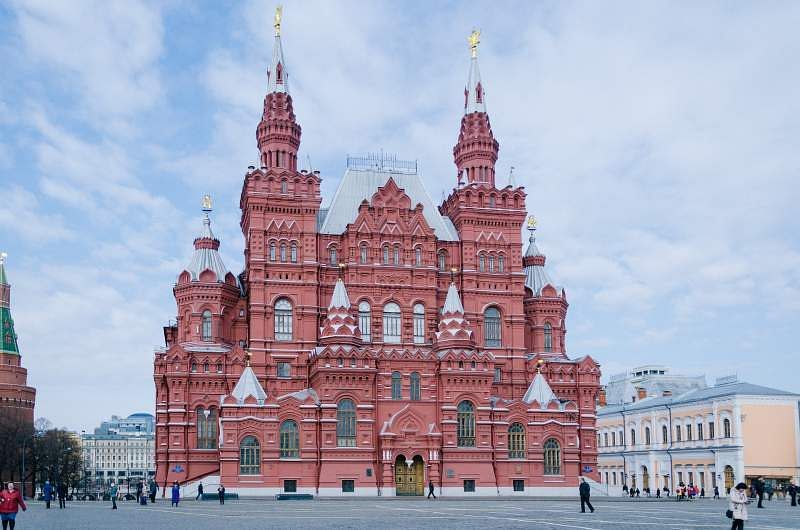
There is one more characteristic of Russian grammar I have mentioned above that I need to cover. And that is the use of cases.
In the Russian language, nouns change their forms depending on what role they fulfil in a sentence. As a result, their endings have to be modified.
I will introduce each of the six cases briefly to give you a better idea of how they work. They are the nominative, genitive, dative, accusative, instrumental, and prepositional case.
#1 The Nominative Case
The nominative case designates the subject, and answers the questions “who?” or “what?”. It requires the initial form of the noun. (Words in the dictionary are always listed in the nominative case.)
For example:
- Студент читает [stoodyent chitayet] – The student is reading.
- cтудент -> cтудент (no change)
#2 The Genitive Case
The genitive case is used to indicate possession or origin. In English, we do this using the word “of” or an apostrophe followed by “s”. It answers the questions “whose?” or “of what?”
For example:
- берег реки [byereg reki] – the bank of the river
- река -> реки ( -a becomes -и)
#3 The Dative Case
The dative case indicates that something is given or going to someone/something. It answers “to whom?” or “where to?”
For example:
- Я иду к врачу [Ya eedoo k vrachoo] – I’m going to the doctor
Я даю это маме [Ya dayoo eh-to mamye] – I’m giving this to Mom - врач -> врачу (the ending -у is added)
- мама -> маме (-a becomes -e)
#4 The Accusative Case
The accusative case tells you the object of the verb. It answers the questions “what?” and “whom?” in reference to something or someone that is the target of an action.
For example:
- Я читаю книгу [Ya cheetayoo knigoo] – I’m reading a book
- Я встретил друга [Ya vstretyiI drooga] – I met a friend
- книга -> книгу (the ending -а becomes -у)
- друг -> друга (the ending -а is added)
#5 The Instrumental Case
The instrumental case is used to denote an instrument or tool which helps perform an action. It answers the questions “with what?” or “how?”
For example:
- Я пишу карандашом [Ya pishoo karandashom] – I write with a pencil
- Я копал яму лопатой [Ya kapal yamoo lapatoy] – I dug a hole with a shovel
- карандаш -> карандашом (the ending -ом is added)
- лопатa -> лопатой (-a becomes -ой)
#6 The Prepositional Case
Finally, the prepositional case is used after the prepositions о [oh] (about), в [v] (in or inside), and на [nah] (on or at).
For example:
- Oна говорит о литературе [Ona gavareet o leetyeratoorye] – She is talking about literature
- Собака спит на стуле [Sabaka speet na stoolye] – The dog sleeps on the chair
- Литературa -> литературе (-a becomes -e)
- Стул -> стуле (the ending -e is added)
Although you will eventually need to memorise how each case impacts every kind of noun ending, this is not the recommended initial approach.
As a beginner, a good way to familiarise yourself with the cases is by looking at what question is being answered in the sentence, and how that affects the noun.
Alternatively, you can also try the reverse approach, and think about what each case allows you to express. Then, try practicing by forming some sentences you would actually want to use which require that case.
Because cases follow rules and patterns, getting the hang of them should be easier than it seems. And it only gets easier over time.
I’ve covered all the key features of Russian that are crucial for beginners to know about. As you’ve noticed, some of these can seem quite complex, while others are very simple and elegant.
All in all, you must remember that Russian is a very logically constructed language. There is a lot of grammar to get the hang of, but once the rules make sense to you, they always will.
That’s enough of the heavy grammatical stuff for now, let’s talk about some aspects of Russian culture.
Want to download a PDF of this article to read later? Click here to get your FREE copy.
What You Need To Know About Russian Culture

Russia is the largest country in the world, making up an eighth of all the globe’s landmass. You can only imagine the incredible diversity of cultures you can find between the Gulf of Finland in the West and the Kamchatka peninsula in the East.
Early Russian culture was influenced by Slavic tribes, nomads and settlers from Scandinavia, Finland, and Eurasia, Byzantine missionaries, and so many more. All of these peoples have left their mark, however great or small.
It would take far too many words to describe all of Russian culture. Instead, let’s focus on some important aspects that you need to know about.
Classical music, ballet, and opera are pillars of Russian culture. You may recognise the names of world-famous Russian composers like Rimsky-Korsakov, Stravinsky, and Tchaikovsky.
Concert halls like the Bolshoi and Mariinsky theatres are notorious in the world of classical music, ballet, and opera. (If you ever go to one of these concert halls or theatres, you are expected to dress formally and elegantly.)
Russian cuisine draws on many cultures, and widely uses fish, poultry, root vegetables, mushrooms, berries, and honey, as well as pastry and dough. Some of my favourite Russian dishes are:
- Dressed herring, or herring in a fur coat: a layered salad made of diced pickled herring, grated boiled vegetables like potatoes, carrots, and beetroots, chopped onions, and mayonnaise. It is a traditional dish, and commonly found on the table at New Year’s and Christmas celebrations.

- Borsch: a soup usually made with beetroot, potatoes, and meat, as well as other soup vegetables. It is often served with a dollop of smetana, or sour cream. It is believed to originate from Ukrainian cuisine.

- Pelmeni: these are dumplings usually filled with ground beef, pork, or both. They can be boiled or fried, and are also usually served with smetana. They likely originate in Siberia or the Ural.

- Bliny: traditional thin pancakes that can be compared to crepes. They can be topped or stuffed, sweet or savoury. Some popular fillings include condensed milk, smetana, minced meat, and caviar. They are so popular that there are at least 2 Russian fast food chains which specialise in bliny. (Fun fact: bliny is also a euphemism for a Russian swear word (a bit like “fudge” in English)

- Zakuski: these snacks are a centre-point of Russian food culture. No matter what the celebration, you will always find zakuski on the table. From small open sandwiches topped with butter and caviar, to cold cuts like seasoned sausage, to pickled cucumbers and tomatoes, to slices of Russian “black” bread”, to fruits, zakuski can be a whole lot of different things. The main commonality between them is that they’re great to eat with a drink.
You also need to know that outdoor activities are very popular in Russia, which makes sense considering the winters can be cold and dark, and summer days are long and hot.
You will find that many people who live in cities will get away to their dacha, or summer house, as soon as the weather is warm enough. Barbecues, fishing, gardening, foraging, boating, skiing, swimming, hunting, and camping are some of the most popular things to do with friends and family.
As for sports, you may have noticed how competitive Russians are about their athletic performance. The two most popular spectator sports are football (or soccer, to Americans) and ice hockey.
There is much, much more to be said about Russian culture. The best way to learn about it is to consider it a part of your language studies. As you begin to speak more Russian, the language will open up the culture and philosophy too.
Is Russian Hard To Learn?
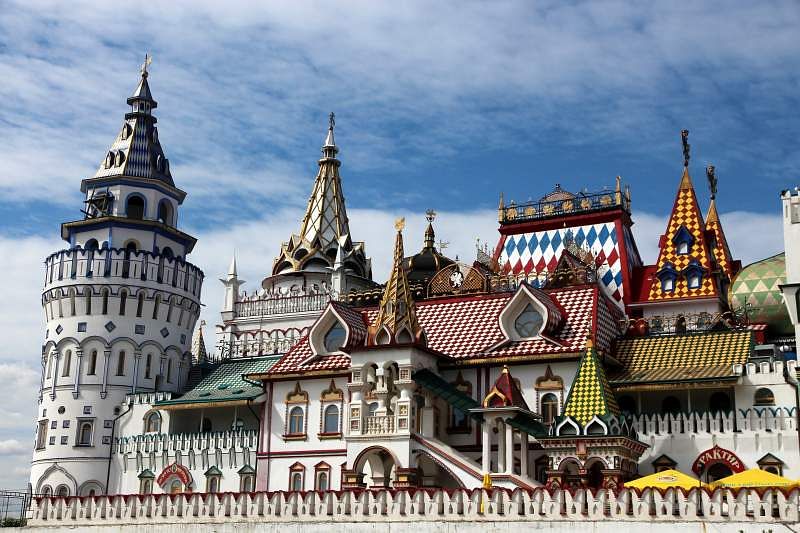
It’s kind of a silly question, but everybody asks it, so I will do my best to answer. As I’ve pointed out repeatedly in previous sections, Russian looks a lot more intimidating than it really is. You’ve already learned that the Cyrillic alphabet is actually pretty easy!
Cases can be a challenging aspect of grammar to remember, but they do make Russian a lot more specific and direct. In many ways, this makes it easier to understand.
Additionally, word order is very flexible, unlike in other languages such as English, French, or Spanish.
Luckily for you, there are many cognates in Russian. The shared vocabulary with other European languages means you can already understand a lot of words before you even begin studying Russian!
Prefixes and suffixes will take some time to remember, but they also make expanding your Russian vocabulary much easier. Instead of having to learn every single word, you can often infer its meaning from what you already know.
Overall, learning Russian is perfectly doable. There will always be challenges to learning any language, but Russian is very structured and logical compared to some others. Besides, because Russian is so widely spoken, there are plenty of learning resources to help you along.
5 Pitfalls To Watch Out For As A Beginner Russian Learner
Here are some bad habits you should avoid at all costs as you begin to learn Russian. Trust me, even if it seems counter-instinctive, these will only make learning Russian more difficult than it needs to be.
#1 Don’t Translate
This rule is very important when learning any new language. While it can seem easier to say the sentence in your head first and then translate it into Russian, this is a habit you must learn to avoid.
Doing this will most likely just confuse you, and cause you to lose sight of how to structure a sentence in Russian. Instead, start by learning useful words and phrases, and tie them together with what you know about Russian grammar.
#2 Don’t Memorise Long Lists Of Random Russian Words Or Declensions

You’re right, expanding your vocabulary and some memorisation is important if you’re ever going to become fluent. But keep in mind that the brain is not made to memorise lists.
A much better approach is to form connections and use real examples when you learn words, phrases, and declensions. Instead of trying to learn lots at a time, practice a few words until you’re completely comfortable with using them in a sentence.
#3 Don’t Be Afraid To Make Mistakes
The fact of the matter is: you’re going to screw up, and it’s going to happen many times. Don’t be afraid of this! When you’re learning a language, mistakes are some of your best learning opportunities.
Besides, most Russians will be thrilled that you’re even making an effort to speak their language. Don’t be afraid to get things wrong. Remind yourself that most native speakers make grammar mistakes all the time!
#4 Focus On The Language, Not The Resources
I’m warning you now – there are tons of resources out there to help you learn Russian, and each one is going to be a little bit different. Every teacher teaches in their own way, and every student learns differently.
The key here is not to get caught up in the resources. If a particular approach doesn’t make sense to you, don’t be afraid to consult a different source. After all, it’s about learning the language, not conforming to the resource.
#5 Don’t Give Up
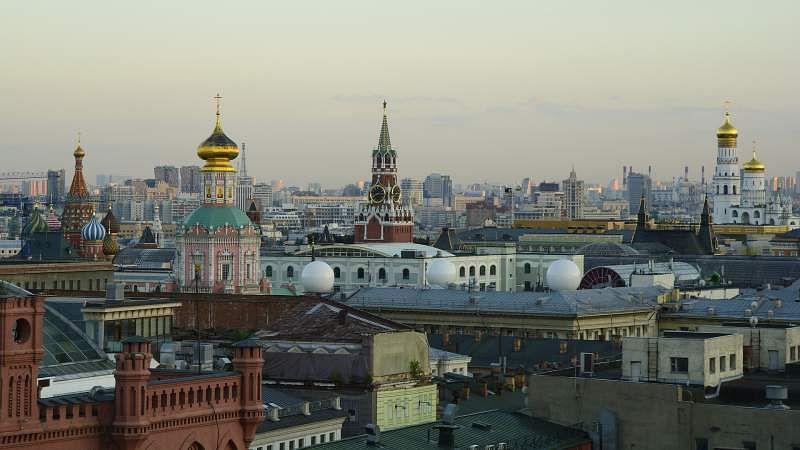
This is probably the last thing you want to hear when you’re frustrated and ready to abandon your dream of learning Russian. But it’s also the most important!
When things get difficult, or you’re confused, try to take a step back. Find someone or something that can clarify what you’re struggling with. Talk to a Russian-speaking friend. Just stick with it, and it will keep getting easier, I promise!
Five Steps To Learn To Speak Russian For Beginners
I’ve covered the “don’t”s, so what about the “do”s? Where is the best place to start?
1. Enrol In Russian Uncovered To Learn The Fundamentals (And More!)

One important thing about learning a language is that it must come from the learner, not the teacher. The teacher’s job is to guide you – but you must do the learning.
This means you will need the necessary tools to learn, and a good beginner course is indispensable.
You’re going to need lots of input via reading and listening in order to move beyond beginner Russian and grow your vocabulary. That's why I've created my online Russian course – Russian Uncovered – to teach you through the power of story.
You'll listen to and read your first book in Russian, and our expert Russian teacher Anastasia, will help uncover the grammar and vocabulary in the story, chapter by chapter.
By the time you've finished, you'll be a confident and well-rounded Russian speaker, ready to use your Russian in the real world!
Get started now with a FREE 7-day trial
2. Set Short And Long-Term Goals

Fluency is a coveted trophy, but it’s a long-term goal, so don’t set your sights only on that: break the big goal down into more manageable, short-term goals. This will give you a sense of progress and achievement as you work towards fluency in Russian.
Whether or not you’re following a textbook or course, you will need to get a strong grip on the fundamentals of Russian grammar and vocabulary.
I’ve covered a lot of these in this article, which can serve as a rough guide on where to start. Some of the main topics are the Cyrillic alphabet, pronunciation, verb conjugation, and when and how to use the different cases. These topics make for some great short-term goals to get you started.
3. Memorise Key Russian Phrases

You’re right, I told you not to memorise too much. But there are certain Russian words or phrases that you need to learn by heart. These include things like “hello”, “my name is”, “how are you?”, and so on. You know – the essentials.
4. Don't Get Too Hung Up On The Grammar

It’s important to understand the main aspects of Russian grammar, and be able to use them to express yourself. However, try not to get too hung up on the linguistic theory.
Don’t tell anyone I said this, but if you asked your average Russian why certain rules are the way they are – they wouldn’t really be able to explain. It just sounds right!
5. Find Russian People To Speak With

You will learn to converse faster and more organically if you have a native speaker to practice with. There are some things textbooks just don’t tell you, like how Russian really sounds, and how Russians really talk to each other.
Whether you find an online Russian tutor or a local friend, try to spend as much time as possible practicing what you’ve learned out loud.
If you follow these five steps, you’ll already be making a fantastic start to your language learning journey. Before you know it, you’ll be a pro!
Resources To Learn Russian Online And Offline
There is a very wide variety of materials available for helping English speakers learn Russian.
To close out this article, I’m going to provide you with recommendations for some of the best materials I've come across for learning Russian.
Whether you plan to learn Russian online, or you prefer to use traditional materials, I'm confident you'll find some great resources here to help you get started.
Russian Courses Online For Beginners
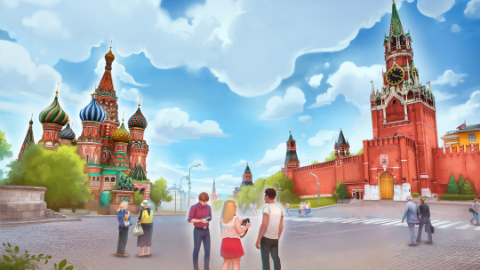
- Russian Uncovered – My comprehensive online Russian course that teaches you Russian through the power of story. Learn to speak Russian like a local and create your ideal life, all while enjoying an entertaining story in Russian! Get started now with a FREE 7-day trial!
Test Your Current Russian Level
Not sure of your current level in Russian? Take my FREE online Russian level test and find out, so that you can choose the right resources and strategies for your level.
Russian Grammar

- Russian Grammar Hero – Tired Of Translating In Your Head When You Speak Russian? Grammar Hero Helps You Internalise Russian Grammar, Speak with Authenticity & Communicate with Freedom!
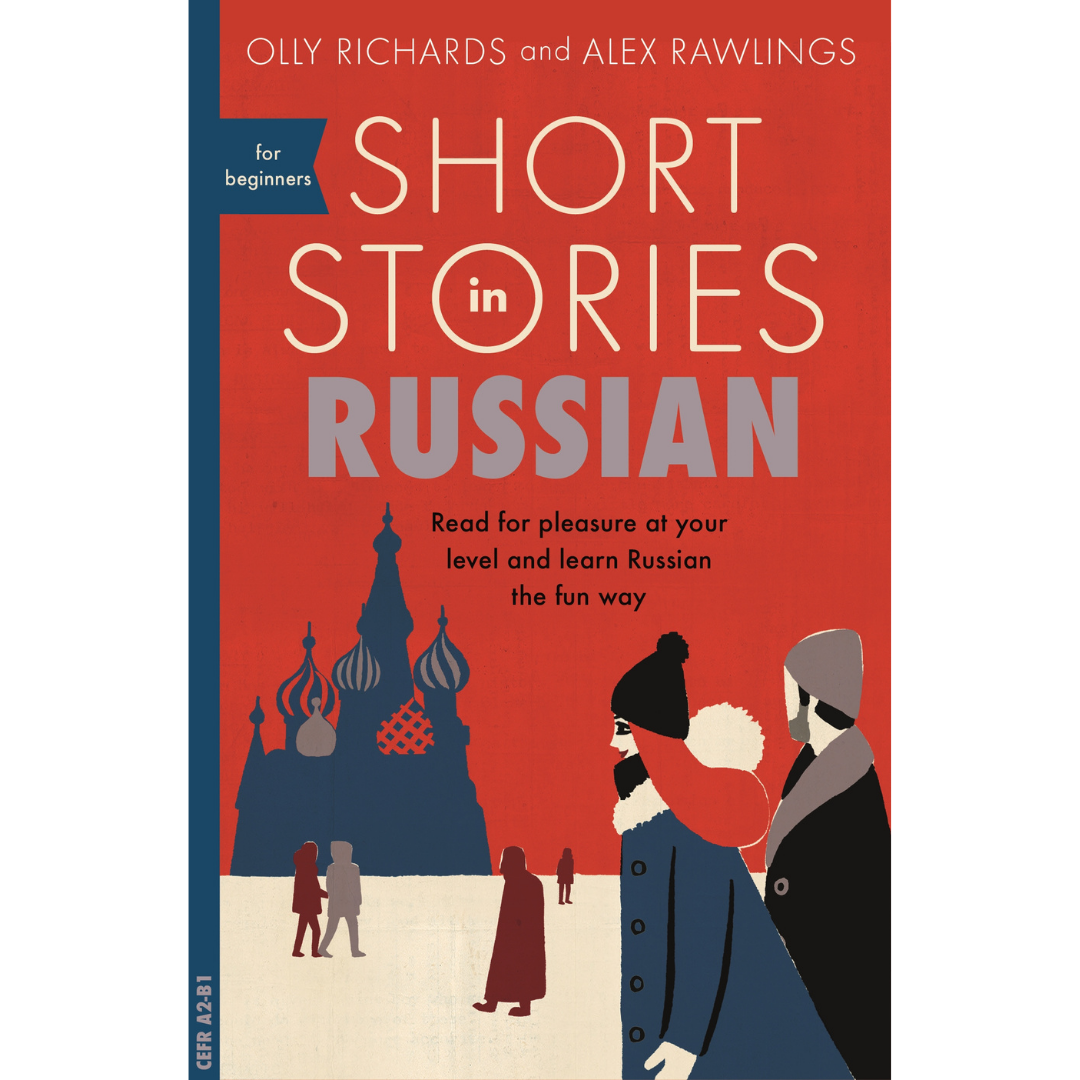
Russian Books
- Russian Short Stories For Beginners – Improve your comprehension, grow your vocabulary and ignite your imagination with these eight unconventional Russian short stories! (Beginner)

Learn How To Speak Russian
- LanguaTalk – This is my favourite website for finding teachers and affordable tutors to help practise my Russian. I use LanguaTalk literally every day to get that all-important speaking practice that helps me stay fluent.
Now You Are Ready To Start Learning Russian!

Hopefully, with everything this beginner’s guide has taught you, you are now ready to face the Russian language with more confidence than ever.
Remember that there are plenty of people and resources out there that can help you. If you need help with anything, make sure to visit my topic-based guides for beginning Russian learners. I wish you the best of luck!
Всего хорошего!
I hope you’ve found this post helpful!
If you have a friend learning Russian, please take a moment to share this post with them, it would mean a lot to me! (You can click here to send a Tweet!)
I know this is a long post and it’s difficult to take everything in all at once. That’s why I’ve created a special PDF version which you can download and refer to any time you need it! And if you download the PDF, I’ll send you even more tips to help you as you continue learning Russian.
Click here to download the PDF version of the article and receive more great language learning tips for free.
